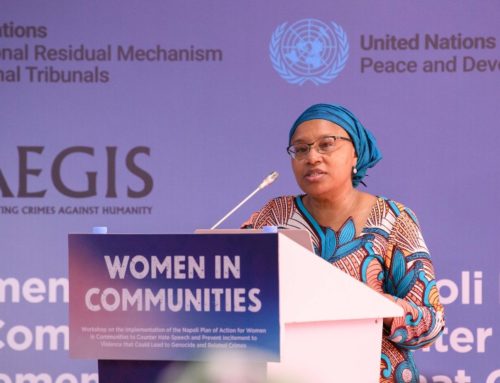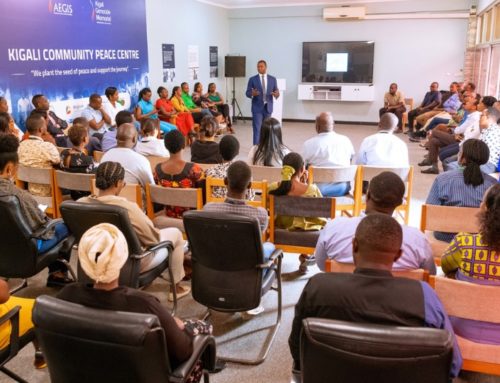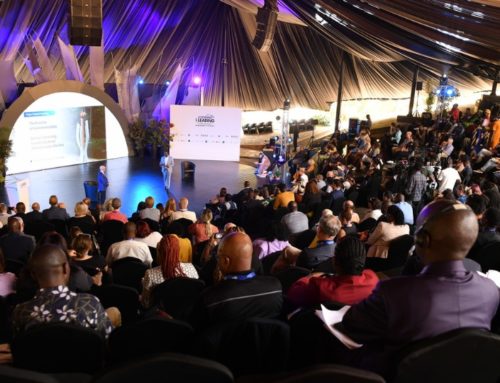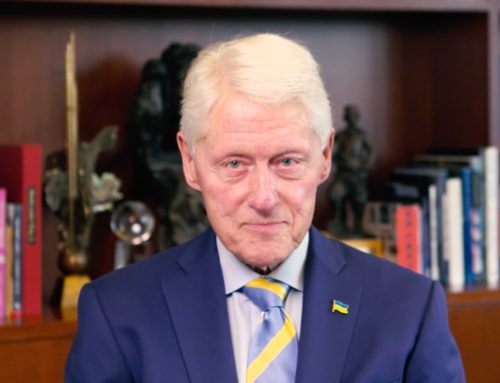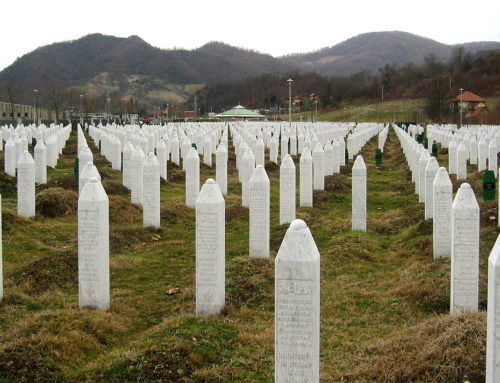22 Oct 09 – A coalition of peers, leading legal figures and human rights NGOs are calling on the Government to close a serious loophole in UK laws on genocide, war crimes and crimes against humanity. At the moment, while a person suspected of torture can be arrested and tried in the UK if they are found to be present here, because of legal anomalies, a visiting person suspected of genocide or mass murder who is not formally resident here is beyond the reach of our law. If moves are not made by the Government to close this loophole the issue will come to a head on Monday 26 October 2009 (from 3pm) when peers will seek to insert an amendment to the Coroners and Justice Bill during its Lords Report Stage.
Already at the Committee Stage of the Coroners and Justice Bill the same coalition successfully persuaded the government to accept an amendment which would enable the UK courts to try suspects for genocide, war crimes and crimes against humanity if they were committed after 1991 and not only those committed after 2001 as the law at present provides. This move would allow suspects of such crimes in Rwanda or the former Yugoslavia to be brought to justice.
The Secretary of State for Justice, Jack Straw, has acknowledged the problems presented by the current residency requirement for prosecution in the UK of such crimes and said: “we are exploring the possibility of providing more certainty as to who may (or may not) be considered a UK resident”. Hopes were raised over the summer that a new and expansive definition of “residency” could be agreed upon – something that came a lot closer to the “presence” requirement for prosecution that many other countries including Canada and the United States exercise. ‘If we can have a presence requirement for torture’ says Kevin Laue of REDRESS ‘then why not for genocide?’.
Whether, and the extent to which, the Government is willing to close this loophole will now be put to the test in the House of Lords.
“We are determined that the UK should not be seen as a safe haven to people suspected of these terrible crimes” said Baroness D’Souza. That is a view shared by other Peers, MPs and leading legal figures. Sir Ken Macdonald QC, the former Director of Public Prosecutions has asked ‘What is it about arresting people for war crimes that this government doesn’t like? An important part of making the world a safer place for innocent people is to make it a lot less safe for their tormentors. Our law should stop providing comfort to international criminals’.
Suspects who have been in the UK since the 1990s but are deemed not to be “resident” include: Felicien Kabuga, the alleged financier of the Rwandan genocide and Chucky Taylor, former head of the anti-terrorist unit in Liberia, who was recently convicted in the United States. Border Agency statistics indicate that other suspects may be present in the UK who are being refused residency status but who, rightly, cannot be removed for human rights reasons and thus under the current law are effectively immune from prosecution in the United Kingdom. Sally Ireland, Senior Legal Officer at JUSTICE, said: ‘Incredibly dangerous people – including mass murderers – can holiday or visit quite freely in the UK and our police are unable to do anything about it. This situation is unacceptable.’
‘The last Government quite rightly put enormous effort into investigating Nazi war criminals found in the UK’ said Nick Donovan, Head of Campaigns at the Aegis Trust ‘We look forward to this Government putting the same emphasis on suspected war criminals and génocidaires from modern day conflicts’.
FOR MEDIA ENQUIRIES CONTACT:
Aegis Trust, David Brown, email: david.brown@aegistrust.orgThis e-mail address is being protected from spambots. You need JavaScript enabled to view it , mobile: +44 (0)7921 471985, tel: +44 (0)1623 836627, www.aegistrust.org
REDRESS, Kevin Laue, email: Kevin@redress.orgThis e-mail address is being protected from spambots. You need JavaScript enabled to view it , tel: is 020 7793 1777, www.redress.org
JUSTICE, Sally Ireland, email: sireland@justice.org.ukThis e-mail address is being protected from spambots. You need JavaScript enabled to view it , tel: 020 7762 6414, www.justice.org.uk
HOUSE OF LORDS, Julian Dee, email deej@parliament.ukThis e-mail address is being protected from spambots. You need JavaScript enabled to view it , tel: 0207 219 1414
Human Rights Joint Committee – Twenty-Fourth Report ‘Closing the Impunity Gap: UK law on genocide and related crimes’: 21 July 2009 http://splashurl.com/q9rgqoc
For more information of suspects in the UK, please the Aegis Trust’s Report, ‘Suspected War Criminals in the UK: Proposals to Strengthen our Laws’ (July 2009) http://splashurl.com/njlus2h

